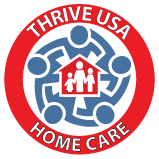6 Must-Know Tips for Senior Eye Health
Those who are over the age of 65 have a higher risk of developing eye health issues than any other demographic, making it a critical issue the older you get or when caring for an aging loved one.
So, what can be done to help preserve eyesight? Here are five tips to consider:
1. Know the Conditions
Glaucoma is the leading cause of untreatable blindness. Glaucoma damages the optic nerve, causing irreversible blindness. The condition is characterized by fluid buildup in the eye. The accumulation increases pressure within the eye, and the stress, in turn, damages the optic nerve.
The condition is usually inherited. If you have a history of Glaucoma in your family, your loved ones are at a high risk of developing the disease as they age. Diabetes and high blood pressure also increase the likelihood that seniors will develop eye conditions.
2. Regular Eye Examinations
Many eye conditions have no immediate symptoms. More often than not, the symptoms kick in when the disease is too far advanced – which underscores why elderly patients, in particular, should receive regular eye examinations. When discovered early, eye health problems can be treated or managed. In some, like Glaucoma, however, if the condition is left untreated for too long, the damage is permanent.
3. Quit Smoking
Smoking increases the chance of developing cataracts and optical nerve damage.
4. Get More Sleep
Since eyes strain more as you age, sleep becomes increasingly essential as you get older.
5. Nutrition is Important
Carrots, in particular, are great for eye health, but vitamins C and E, zinc, lutein, zeaxanthin, and omega-3 fatty acids are vitally important, too. Nuts, dairy, and eggs are a good source of zinc, while egg yolks, broccoli, spinach, and corn all contain lutein. Zeaxanthin can be found in peas, asparagus, lettuce, and pistachios. Finally, cold-water “fatty fish” like salmon and tuna, along with walnuts, are great sources of omega-3 fatty acids.
6. UV Rays are Bad
Too much UV radiation can damage your eyes, so make sure your sunglasses block UVA and UVB rays. This should help protect the whites of your eyes while blocking eyeball-damaging UV light.
Know the signs!
Of course, the best method is to be proactive when it comes to your or your loved one’s eyesight. Contact Thrive USA Home Care Services if you have questions.


